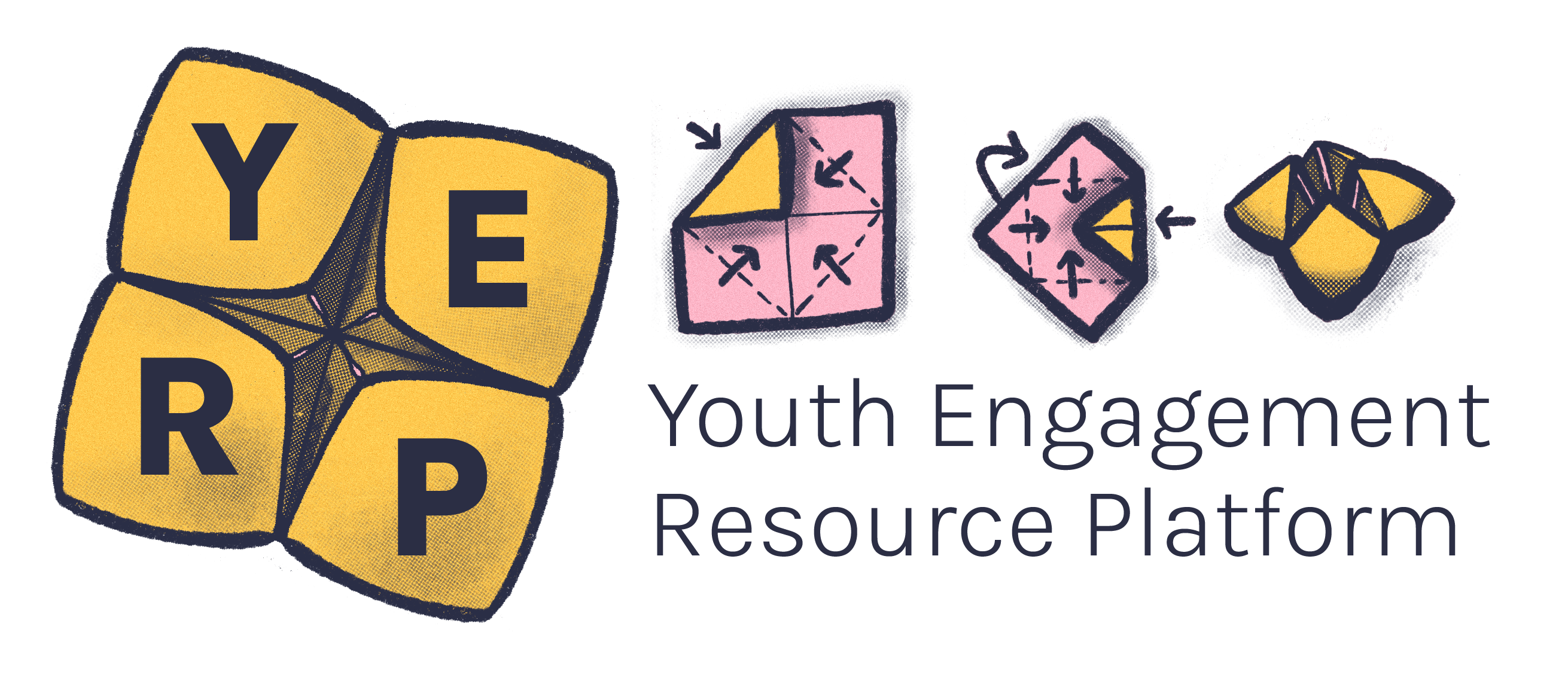Young people have amazing insights on recruitment panels, especially for recruitment to youth organisations. But it’s important to do it right, and in a way that’s safe, inclusive and accessible.
You can upskill young people
The changing nature of the employment landscape means there are more and more challenges for young job-hunters.
An opportunity to be on an interview panel and be immersed in the world of hiring is a positive boost for young people.
It gives them the unique perspective of ‘being on the other side of the table’ in interviews. They learn what to look for, what works, what doesn’t work, and what makes a ‘good’ or a ‘bad’ interview.
They learn invaluable skills that they can take to their own future interviews.
Young interviewers can tell if a candidate will genuinely work well with your organisation's young clients
When young people are on your interview panel, you can ask them in the moment if they felt comfortable, safe and empowered by their experience with the candidate.
Did the candidate engage well with the young person, or did they direct all their answers to the older people on the panel?
Did the young person notice any red flags about what they said or how they presented themselves?
New perspectives
Young people may bring fresh ideas and questions to the interview. They may be in the process of completing interviews themselves and be able to offer suggestions of ways to make the interview more engaging.
Upskilling young people
They can learn the ‘do’s’ and don’ts’ of interviews, including communication and interviewing skills.
A change in tone and 'feel' to the interview
It can feel more relatable if the person interviewing is a young person, especially when interviewing other young people. Having a young person on the panel often creates a friendly atmosphere and the tone can be more conversational and relatable for the person who is being interviewed.
Easing the nerves
Having young people on an interview panel, especially when interviewing other young people, can make the person who is being interviewed feel at ease. It might be comforting for the interviewee to know that there’s someone there who can likely relate to their experiences.
You can't be what you can't see
When young people can see themselves reflected in the recruitment panel it shows them more opportunities they can have.
Practising true youth participation
Shows the person you are interviewing that you’re committed to youth participation and that you value young people’s contributions. This can make them more motivated to work with your organisation.
If a young person is involved, it should be meaningful and active youth participation, not just a ‘tick box’ of including them.
There are many ways to avoid tokenism, but some good places to start are:
- Reflecting on whether you are including a young person on the panel just to say you have a young person.
- Checking whether they are actively involved in the interview.
- Ensuring they have opportunities to speak to the interviewee and ask questions.
- Making sure they are given the same information as the other panel members and are included in the discussion and final hiring decision.
A close up of two young people's hands as they go through a paper document with a run sheet, ahead of a meeting.
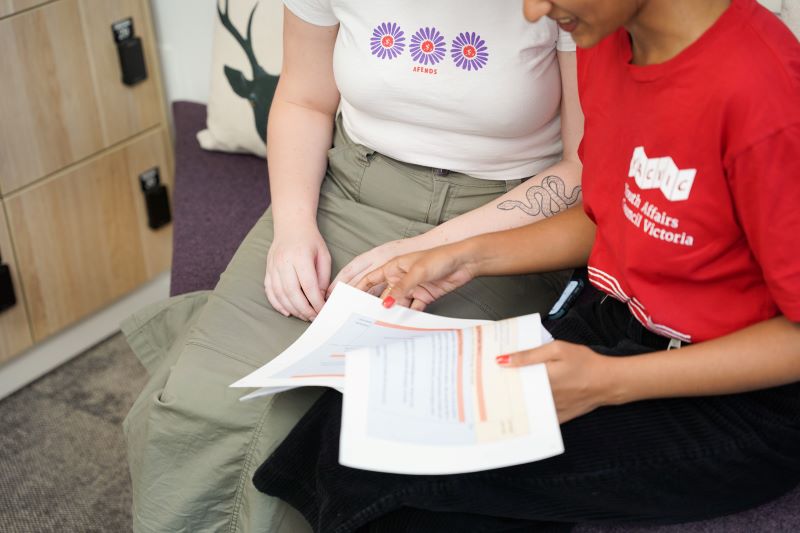
Try to think of implementing meaningful youth participation for interview panels rather than not just being tokenistic.
Not being tokenistic is the base line, the minimum you can do when including young people on your interviews. Meaningful participation goes beyond this.
Make sure you:
- Set expectations around the young person’s role in the interview process and recruitment.
- Is the young person only there to ask interview questions? Or will they be involved in shortlisting candidates and creating the interview questions?
- Is there flexibility if someone has more or less time to support the process outside of the interview day?
- Make it clear who the young person can speak to if they have questions, or something goes wrong.
- Discuss the workload and the length of time things typically take. Young people who are new to recruitment may need a little longer to read through resumes and applications.
- Explain clearly how much preparation/reading is expected.
- Consider if the input from the panel members is being weighted equally.
- Explain how long things will take and what happens at different stages.
- Provide a timeline for the full process and an agenda for the interview day showing clearly how many interviews there will be.
- Communicate remuneration clearly.
- Account for costs if the interview is in-person.
- Will travel and meals be included, or will the young person need to cover these additional costs?
Portrait photo of a friendly, smiling young worker. She is standing in a park in Melbourne's CBD.
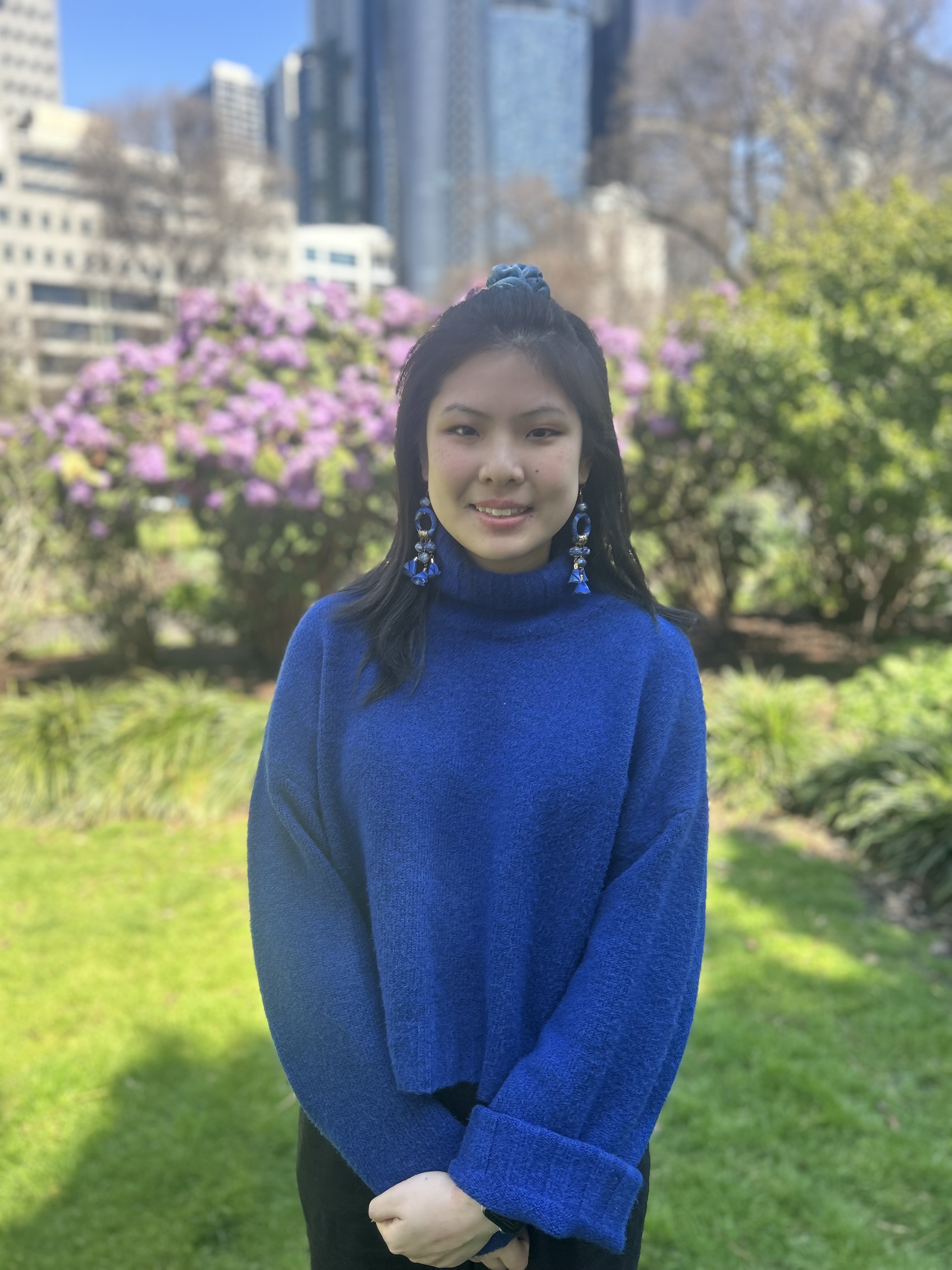
Like always, accessibility for interviews should be a priority. Not only for the person being interviewed but for all panel members. By having an accessible interview, everyone involved will feel much more comfortable.
Find out what access needs your panel members have and address them prior to the interview. Some other things you can do:
- Provide the panel members with the questions list prior to the interview.
- Divide the questions up and clearly mark who will ask which question.
- Make it clear that if anyone needs a break during the interview they’re welcome to have one. Please note, if the interview goes over an hour, it’s best practice to have a five minute break for everyone.
A poster stuck on an office wall listing several tips for accessibility. Each tip has a little drawing to accompany it.
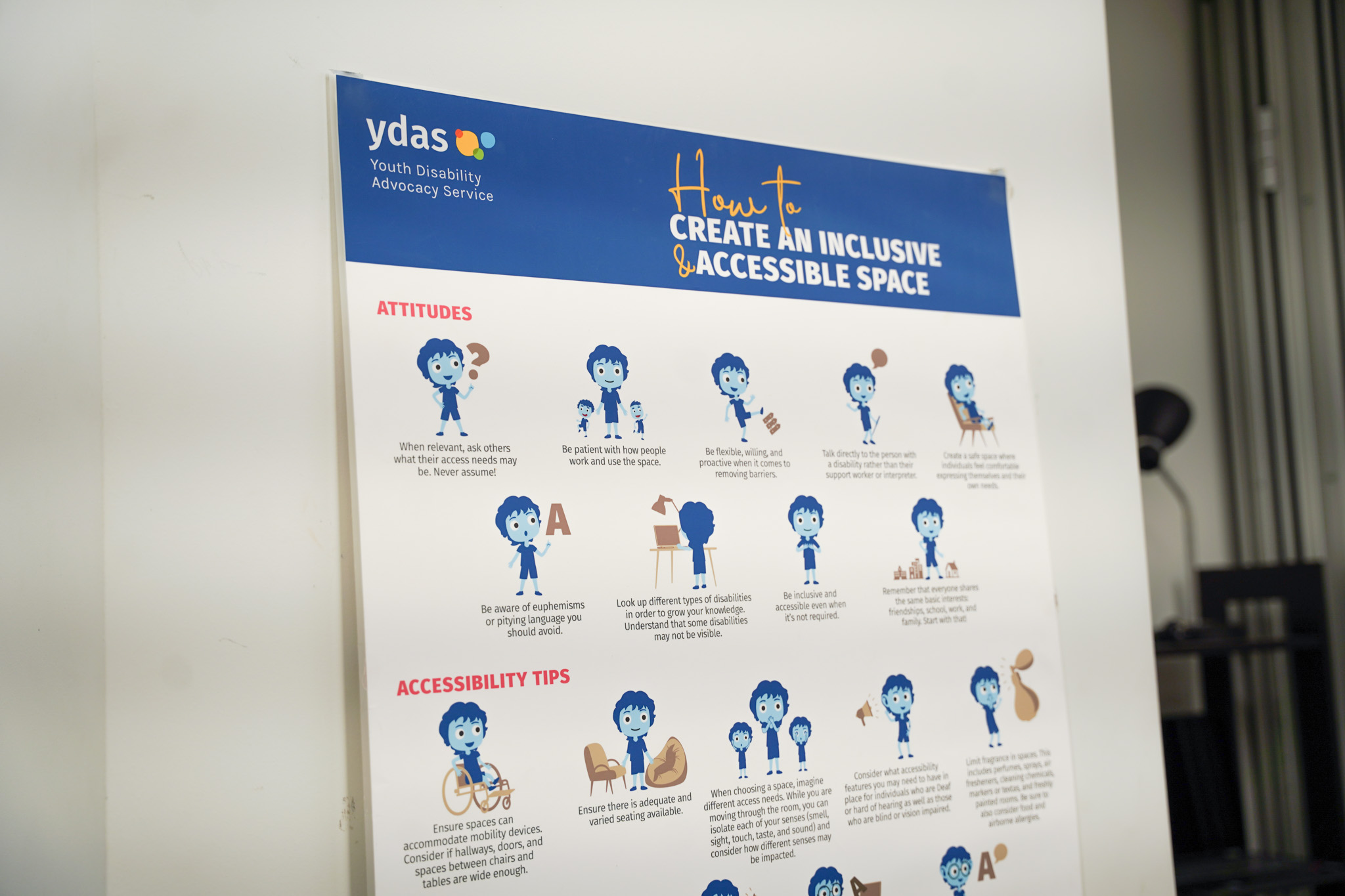
It’s a good idea to provide recruitment training to any young people who are going to be involved in your interview panels.
This is a great opportunity for them to upskill and ensures you’re all on the same page with the expectations of the interviews and what your organisation is looking for.
Recruitment training may include:
- What to look out for
- The do’s and don’ts of interviews
- Writing a resume
- Learning how to answer key selection criteria and interview questions in a clear and concise manner
- Grammar and spelling and why these matter
Additionally, it’s easy to forget that interview panels can be intense and daunting, especially for young people (on both sides) who may not have much experience.
Remind the young people on the panel who they can turn to for questions and support if they need. This contact person will likely be HR, the recruitment team or a Child Safety Officer.
A photo of a young person on a farm, using a laptop.
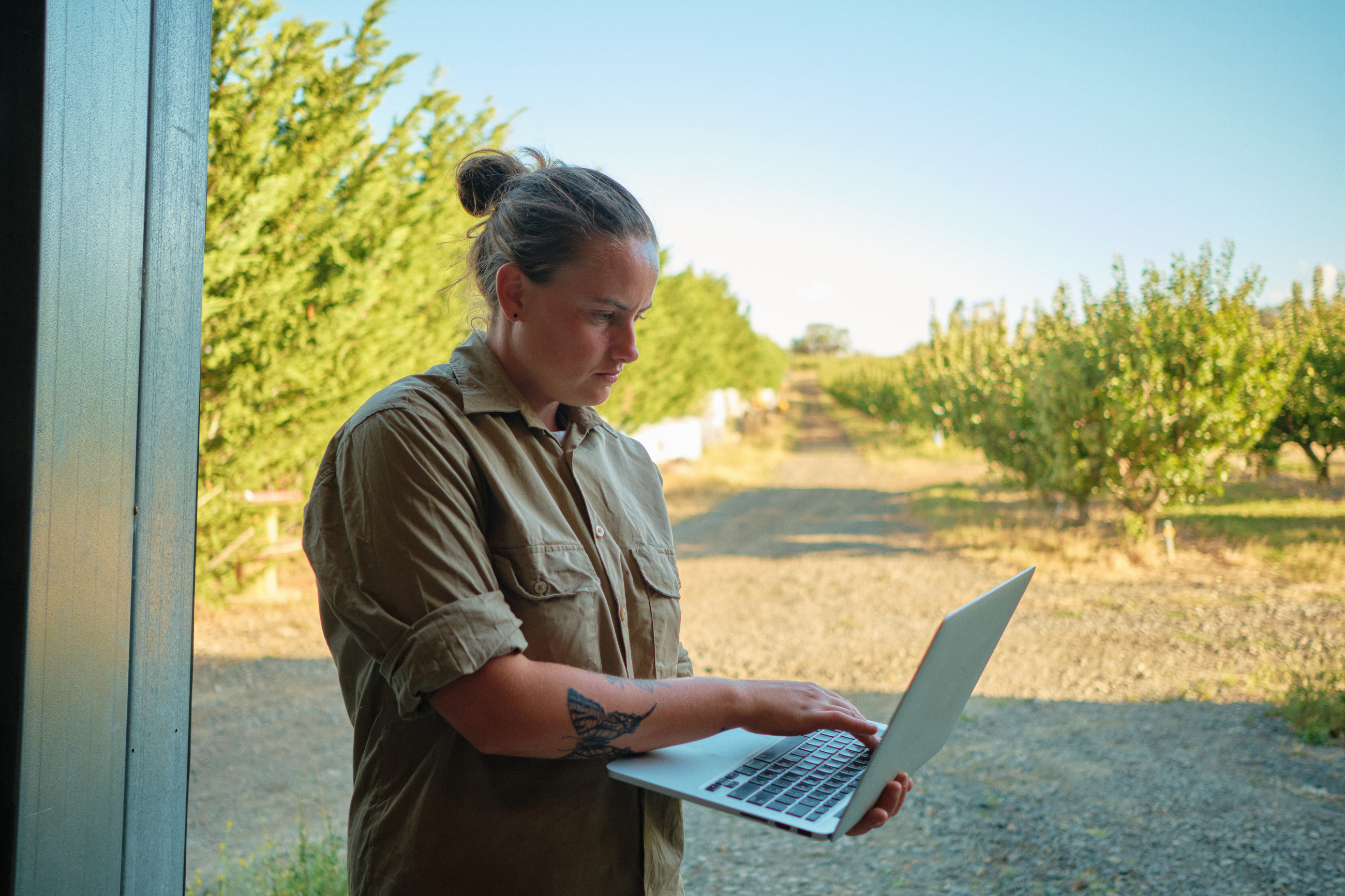
- Koorie Youth Council. (2020). Wayipunga. https://wayipungaresource.org/
- Youth Disability Advocacy Service. (2023). Planning Accessible Events and Activities. https://www.yacvic.org.au/ydas/resources-and-training/together-2/actions/planning-accessible-events-and-activities/
